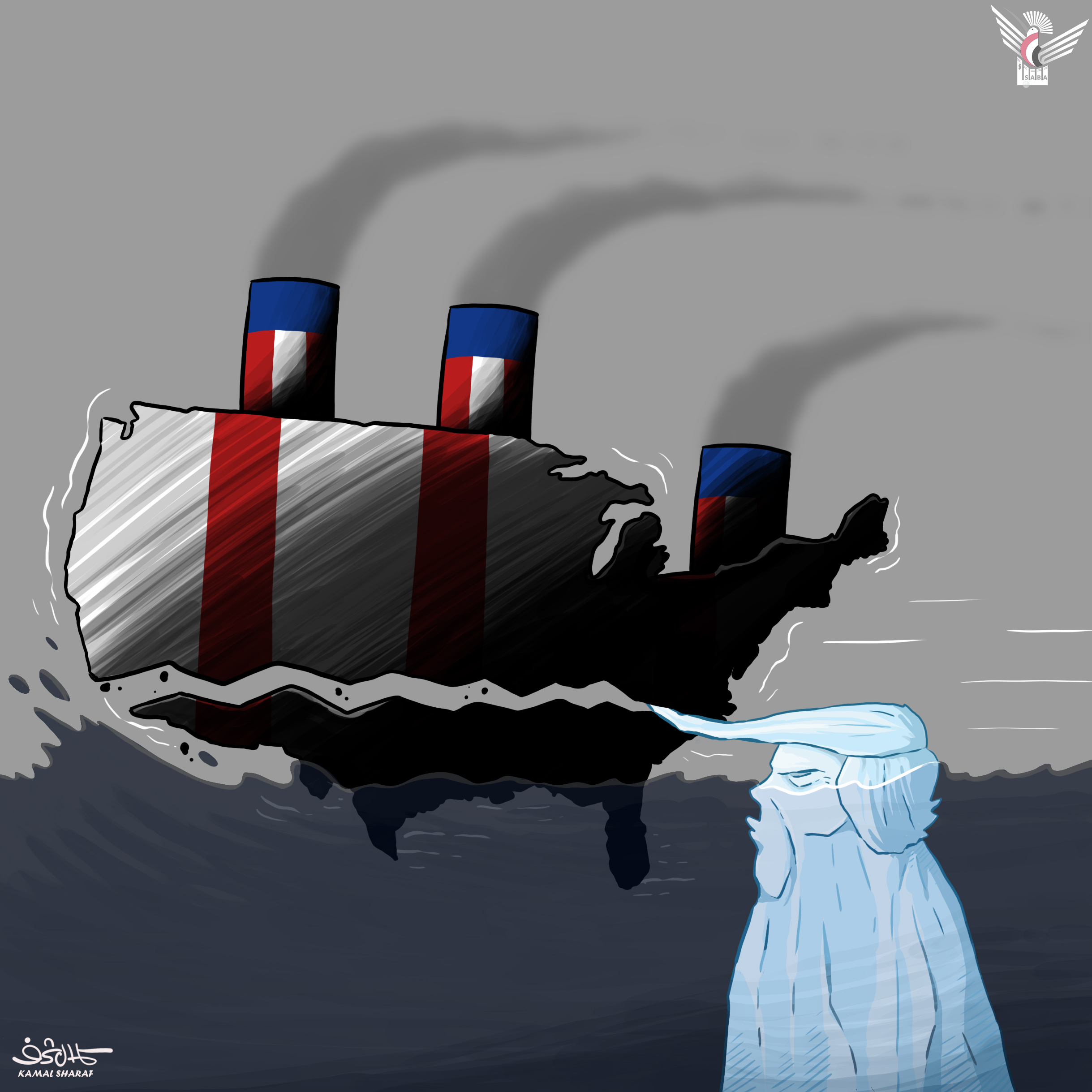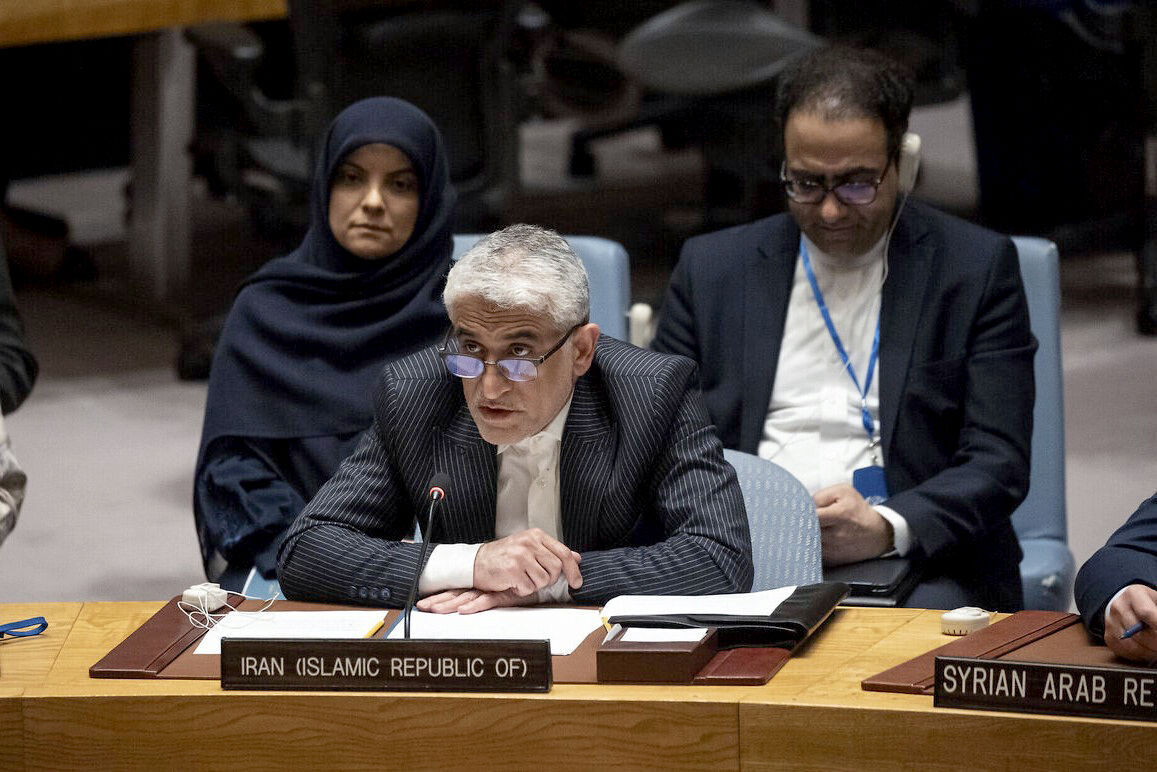New York - Saba:
Iran responded in an urgent letter to the Security Council to what it described as the EU Troika's false allegations regarding its violation of Resolution 2231 and the nuclear agreement.
Iran's Permanent Representative to the United Nations, Amir Saeed Iravani, said in his letter: "If the EU Troika (France, Germany, and Britain) truly wants a diplomatic solution, they must abandon their unrealistic approach and respect the sovereign rights of states within the framework of international law," according to the Iranian news agency IRNA.
In a letter addressed to Caroline Rodriguez Barak, President of the Security Council, and António Guterres, Secretary-General of the United Nations, regarding the allegations and the joint letter from the European Troika, Iran's Permanent Representative to the United Nations stated: "I am sending this letter in response to the joint letter dated June 9, 2025, from the Permanent Representatives of France, Germany, and the United Kingdom, known as the 'Euro Troika,' regarding the implementation of Security Council Resolution 2231 (2015) and the Joint Comprehensive Plan of Action (JCPOA). This joint letter is, unfortunately, yet another example of the European Troika's attempt to evade responsibility and divert public attention from its documented and repeated record of violating its commitments, while simultaneously leveling baseless and politically motivated accusations against Iran."
Iravani affirmed his country's "categorical rejection of the allegations made by the European Troika," noting that "these allegations, which ignore the underlying context, distort the reality of the current status of the JCPOA, the terms of Iran's nuclear program, and the responsibilities of the parties to the agreement."
He added Iran's Permanent Representative to the United Nations stated that "the European Troika's allegations are not only baseless and misleading, but also legally groundless and politically biased," stressing that "its attempt to conflate the provisions of the Joint Comprehensive Plan of Action (JCPOA) with Iran's obligations under the Comprehensive Safeguards Agreement is a deceptive and dishonest move."
Irawani also emphasized in his letter that "Iran's nuclear program is entirely peaceful, and all enrichment activities are conducted under strict IAEA oversight," warning that "any attempt or threat to activate the trigger mechanism will lead to serious negative consequences."
He continued: "The European Troika's surrender to illegal US sanctions, its inaction after the US withdrawal from the JCPOA, its refusal to implement its commitments, its reimposition of lifted sanctions, and the imposition of new and illegal restrictive measures are all clear and ongoing examples of violations of the JCPOA and Resolution 2231."
The Iranian representative explained that "if the European Troika fails to fulfill its obligations, it has no legal basis." Or morally to resort to the dispute settlement mechanism, let alone the threat of activating the automatic appeal of sanctions. Such a measure would be procedurally invalid, objectively flawed, and politically irresponsible.
Last Tuesday, the Iranian Foreign Ministry affirmed that the IAEA report was "political and unjustified."
Iranian Foreign Ministry spokesman Esmail Baghaei said in statements that "the IAEA report on Iran's nuclear activities is contradictory and does not address the deviation of Iran's nuclear program," stressing that the report is "an attempt by the European Troika and America to justify referring the nuclear file to the Security Council."
Baghaei noted that "Iran has repeatedly affirmed that it does not seek nuclear weapons and has the Supreme Leader's fatwa prohibiting them," warning that "if the IAEA Board of Governors issues a resolution against Iran, it will take a proportionate response."
He noted that "France canceled a phone call between the Iranian Foreign Minister and his counterparts in the European Troika," stressing that "any proposal that does not guarantee the preservation of the nuclear fuel cycle in Iran and does not guarantee the lifting of sanctions will not be acceptable."
US President Donald Trump announced that the sixth round of negotiations with Iran will take place on Thursday, while Iranian Foreign Ministry spokesman Esmail Baghaei announced Baghaei stated that the negotiations will be held next Sunday in the Omani capital, Muscat.
The first round of negotiations between Iran and the United States regarding the Iranian nuclear program began on April 12 in the Omani capital, Muscat.
The Omani embassy in Rome hosted the second round of negotiations on April 19, and the third round was held again in Muscat on April 26.
On May 11, the fourth round of negotiations was held in the Omani capital, Muscat, and both the United States and Iran expressed optimism about the nuclear talks.
On May 23, 2025, Omani Foreign Minister Badr al-Busaidi announced the conclusion of the fifth round of Iranian-US negotiations in Rome, noting that some progress had been made but that it was inconclusive.
The United States insists on negotiating with Iran to abandon its nuclear program, while Tehran asserts that it will not give up its right to enrich uranium and possess nuclear energy for peaceful purposes, denying any intention of acquiring nuclear weapons.

| more of (International) |




